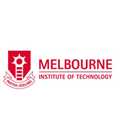Master of Engineering (Telecommunications)
- Posted by Melbourne Institute of Technology
- Home
- Courses
- Melbourne Institute of Technology
- Master of Engineering (Telecommunications)
Master of Engineering (Telecommunications)
Graduates of the Masters of Engineering (Telecommunications) have found jobs at Ericsson, Telstra, Optus, Australian Defence Industry, Mercedes Benz, Hazlehurst, TPG, NBN, Harvey Norma and more. A Master in Engineering Telecommunications could lead to jobs like these: Industrial Design Engineers Network Architects Network Analyst Broadcasting Technician Communications Engineer Microwave Engineer…
Categories
COURSE DESCRIPTION
Graduates of the Masters of Engineering (Telecommunications) have found jobs at Ericsson, Telstra, Optus, Australian Defence Industry, Mercedes Benz, Hazlehurst, TPG, NBN, Harvey Norma and more.
A Master in Engineering Telecommunications could lead to jobs like these:
Industrial Design Engineers
Network Architects
Network Analyst
Broadcasting Technician
Communications Engineer
Microwave Engineer
Communications Lines-person
Electronics Engineering Associate
Security System Technician
Telecommunications Technician
Electrical Engineer
Electronic Equipment Technician
COURSE STRUCTURE
Each unit consists of 20 credit points. A full-time study load is 60 credit points per Trimester. MEng(Tel) comprises ten core units and two electives. Electives are at Level 5 or 6 (Advanced Study).
This study plan may change according to unit availability, credit transfers or Recognition of Prior Learning.
LEARNING OUTCOMES
Graduates of this course will:
Possess a body of knowledge that includes state-of-the-art developments in the area of telecommunications
Be able to investigate and evaluate key telecommunication technologies and apply them effectively in an organisation
Exercise critical thinking and problem-solving ability to tackle complex new problems
Demonstrate significant research, analysis and evaluation skills in the telecommunications discipline
Be able to adapt their knowledge to different circumstances
Be capable of independent professional work with a high level of autonomy and accountability
Be able to collaborate and communicate with others in a professional setting
REQUIREMENTS
Applicants must have successfully completed a Bachelor degree of at least four years duration in an area of Engineering related to Telecommunications or Networks, Electronics, or Electrical Engineering.
English Language Requirement
IELTS (Academic) – Overall score 6.0 (no band less than 5.5)
TOEFL iBT – Overall score 60-78 with minimum scores: Reading 12, Listening 11, Speaking 17, Writing 20
PTE Academic – Overall score 50 with (no score less than 46)
Cambridge CAE – CAE Score of 169 (no band less than 162)
EDUCATIONAL INSTITUTION
Established in 1996, MIT has provided degrees in leading industries since its inception. MIT offers undergraduate and postgraduate courses in business, business analytics, networking, cyber security, data analytics and software and telecommunications engineering. MIT’s courses include tactical industry projects and internships. The institute has relationships with industries of all sizes and types, both profit and not-for-profit. MIT trains students in specialised skills that are in demand in the workplace so that graduates enter the workforce feeling confident they can succeed in a competitive environment. Students at MIT are guaranteed hands-on industry experience in every degree. Student care at MIT goes beyond what happens in the classroom. Student at MIT are given the support and taught the skills required to succeed in the real world. MIT’s English classes teach students to use English in a variety of social and personal situations.
Established in 1996, MIT has provided degrees in leading industries since its inception. MIT offers undergraduate and postgraduate courses in business, business analytics, networking, cyber security, data analytics and software and telecommunications engineering. MIT’s courses include tactical industry projects and internships. The institute has relationships with industries of all sizes and types, both profit and not-for-profit. MIT trains students in specialised skills that are in demand in the workplace so that graduates enter the workforce feeling confident they can succeed in a competitive environment. Students at MIT are guaranteed hands-on industry experience in every degree. Student care at MIT goes beyond what happens in the classroom. Student at MIT are given the support and taught the skills required to succeed in the real world. MIT’s English classes teach students to use English in a variety of social and personal situations.




